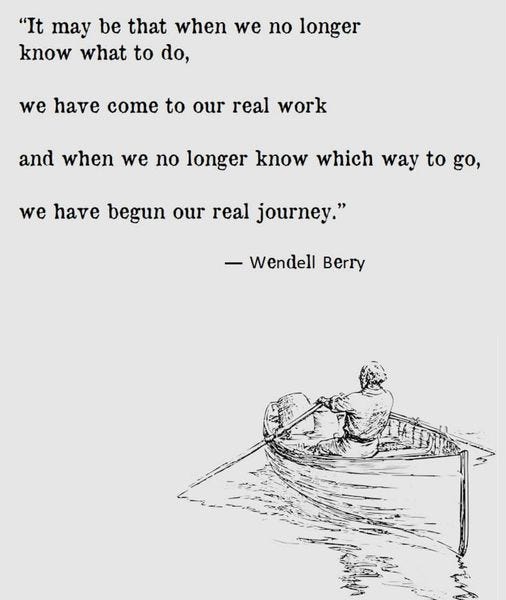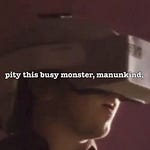“Lord, grant me the strength to accept the things I cannot change,
the courage to change the things I can,
and the wisdom to know the difference.” ―Reinhold Niebuhr
Ambiguity tolerance. A thought that came to me on my run this morning, up here in the north-east corner of S.Korea, near the border with North Korea.
In language learning, ambiguity tolerance is an important concept. When learning a language, you have to tolerate a lot of “noise”, a lot of sound that doesn’t mean anything to you. What’s important is the big picture, the overall meaning - communication is a spear not a spread.
The better you are at tolerating ambiguity, filtering out the signal noise, the better language learner you are. You don’t stress over errors, over what you don’t understand - what’s most important is what you do understand. Call is linguistic learning optimism.
The concept of ambiguity tolerance is not well studied in terms of one’s health. It should be. I believe it is a trait that one can develop, train and unlike so much of the biological deterministic chains we are locked in, ambiguity tolerance can be “grown” and bring one health, in the fullest sense of that word.
Think about what you do just to exist. You body is flooded with sensory data, information, stimulii. I use the word “body” and not brain because I believe we are amiss to assign the brain the sole ruler of thought, processing (and I do hate this term we’ve borrowed from computation/machines). All is embodied, every damn thought, we think with our selves.
But back to the point at hand - our senses. We have to make sense of the world and basically our most important activity and what is crucial to our own health and “lifelyhood” as an organism is that of filtration. How well we filter all the noise that overloads our senses defines what we might term “intelligence” and how well we live in this world.
Just think of our vision. Perhaps our pride and glory as a hominid. What we experience is but a fraction of what is there. We filter (see the Troxler Effect), we tolerate the ambiguity and just go, follow, use, what makes sense. Otherwise, we’d go crazy, be overwhelmed, paranoia would set in. Ambiguity tolerance is the glue that keeps us sane.
Taking the concept of ambiguity tolerance on step further brings us towards a personality type that we should all aspire towards - one that is not authoritarian, one that is flexible and tolerant.
Else Frenkl - Brunswik is one of the few to have studied the tolerant/intolerant of ambiguity personality set. She came away with 8 characteristics that define someone who isn’t good at tolerating ambiguity. Think about these items and think about how they in strength lead to what might be called a maladjusted personality, full of fear, lacking tolerance, prejudiced, rigid, anxious.
Need for categorization
Need for certainty
Inability to allow good and bad traits to exist in the same person
Acceptance of attitude statements representing a white-black view of life
A preference for familiar over unfamiliar
Rejection of the unusual or different
Resistance to reversal of fluctuating stimuli
Early selection and maintenance of one solution in an ambiguous situation
People get so angry at what they don’t know. And in response to this fear (for anger is just fear in a different dress) they label what they don’t know as “this” or “that”. In this way, they seek to elimate the ambiguity they experience but they err, because you can’t elimate it with a lie. This leads to intolerance, hate, untruth and eventually a personality that distrusts the world they live in.
And now we come to the real truth that ambiguity tolerance teaches. It teaches us that there is so much that we can’t control. So much. Let’s be honest - we don’t even know why we are here or where we’re headed. In effect, ambiguity tolerance is an antidote to the greatest vice there is - hubris.
I love this Wendell Berry quote. It is exactly where I am right now, tolerating the ambiguity life throws at me (and you too!). The real journey is knowing how to filter out the unknowing and find that precious sound that make you sing and be alive. That journey Berry points us towards.
Live without fear of the unknowing. Tolerate the ambiguity. Rest in the graceful, warm arms of contingency - for it is there where all real life ushers and the life force is to be found. As the Upanishads so well pointed out - chaos is our cricket test field and those of us who learn to relax, like a drowing man in a whirlpool might, will resurface safe and refreshed.
Alas, tolerating ambiguity is about trust. Trusting the unknown, trusting yourself. Read the Baghavad Gita and think of Arjuna’s response to Krishna’s teaching about dharma. Accept your role. Take pleasure that you are here.
Ultimately I return to the teaching that ambiguity tolerance is optimism, a gratitude to just love what you do know and not what worry about what you don’t.

















Share this post